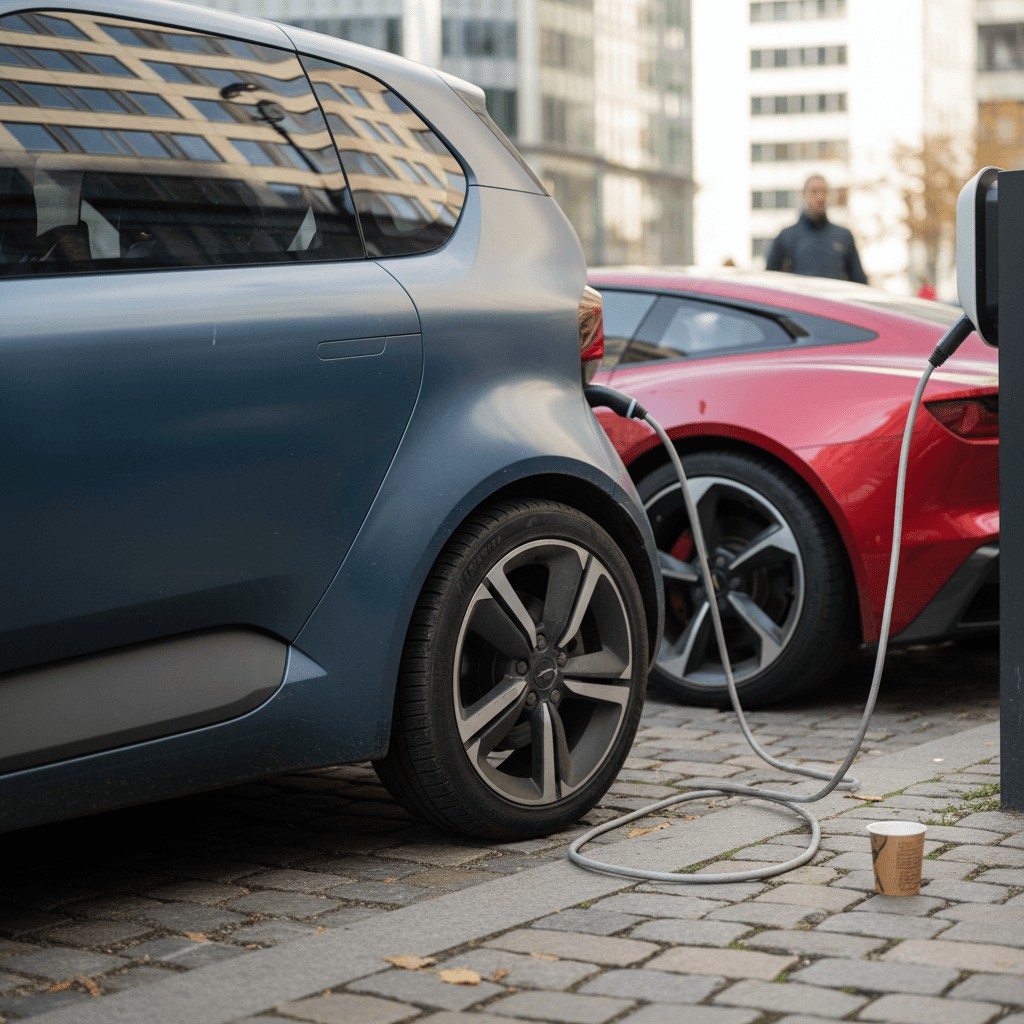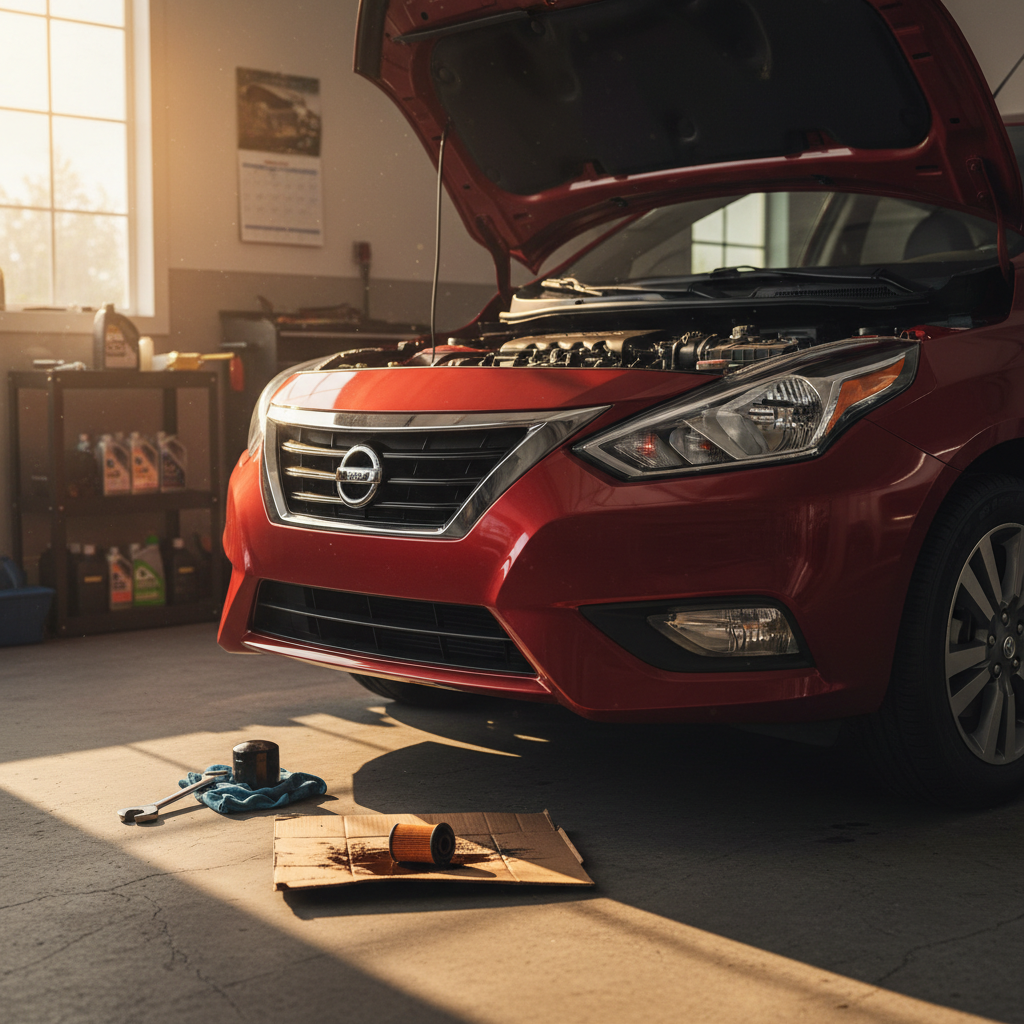If you’re shopping in today’s used market, you’re probably asking a simple question with a complicated answer: what are the most reliable used cars you can buy in 2025? With new-vehicle prices still high and the average car on U.S. roads now about 12 years old, picking something that will actually last is more important than ever.
Where the data comes from
Why Reliability Matters More Than Ever in 2025
Used Vehicle Reliability by the Numbers
Reliability used to be mostly about avoiding breakdowns. In 2025, it’s also about total cost of ownership, repairs, downtime, software glitches, and, in the EV world, battery health and range loss. A dependable used car won’t just save you money; it’ll save you time and stress.
Tip for budget-conscious buyers
Most Reliable Used Car Brands
Different studies slice the data in different ways, but they broadly agree on one thing: Japanese brands dominate the most reliable used cars list, especially if you’re looking at 5–10-year-old vehicles.
Used-Brand Reliability Snapshot
What multi-year studies say about brands when they’re no longer new
Tier 1: Consistently Excellent
- Lexus – Often #1 for used reliability and among the longest-lasting vehicles on the road.
- Toyota – Camry, Corolla, RAV4, Highlander, Tacoma, and Sequoia routinely lead longevity lists.
- Mazda – Simple, well-engineered cars like the Mazda3 and CX-5 age gracefully.
- Honda & Acura – Civic, Accord, CR‑V and their Acura cousins are high-mileage staples.
Tier 2: Very Good Bets
- Subaru – Strong in all-weather wagons and SUVs; watch head gaskets on older models.
- Nissan – Mixed historically, but core models like the Altima and Rogue can be solid when well-maintained.
- Buick – One of the higher-scoring U.S. brands in dependability studies.
- Volvo – Good long-term if maintained, especially for safety-focused buyers.
Tier 3: Mixed Reliability
- BMW, Mercedes, Audi – Great to drive, but ownership costs climb as they age.
- Ford, Chevrolet, Ram – Some excellent trucks and SUVs, but model-to-model variability is big.
- Newer EV brands – Tesla, Rivian, and others often score lower on traditional reliability while owners still report high satisfaction.
In these tiers, the specific model and year matter more than the badge.
Don’t shop by badge alone
Top Reliable Used Models by Type
Let’s move from brands to actual cars. Below are high-probability bets based on multi-year reliability and longevity data. These aren’t the only good choices, but they’re strong starting points if reliability is your first priority.
Most Reliable Used Cars by Segment (Gas & Hybrid)
Representative model years and notes for shoppers focused on long-term dependability.
| Type | Model (Typical Used Years) | Why It’s a Safe Bet | What to Watch |
|---|---|---|---|
| Small sedan | Toyota Corolla / Corolla Hybrid (2016–2022) | Simple, efficient, very high reliability scores, cheap to run. | Avoid neglected fleet cars; check for regular oil changes and CVT service. |
| Midsize sedan | Toyota Camry (2015–2021), Mazda6 (2014–2021) | Both are frequent top picks in used reliability and value rankings. | Inspect for prior accident repairs; avoid heavily modified examples. |
| Compact SUV | Toyota RAV4 (2015–2021), Honda CR‑V (2015–2020) | Top of the charts for reliability, resale, and family practicality. | Listen for transmission noise, verify AWD service where equipped. |
| Hybrid SUV | Toyota RAV4 Hybrid (2016–2020), Toyota Highlander Hybrid (2015–2019) | Combines Toyota hybrid dependability with long-term battery track record. | Confirm hybrid system service history and cooling system maintenance. |
| Sports car | Mazda MX‑5 Miata (2016–2020) | Lightweight, simple, and historically very durable if not abused. | Inspect for track use, clutch wear, and underbody damage. |
| Pickup | Toyota Tacoma (2012–2019) | Overbuilt, high resale, and a frequent appearance on 250k‑mile lists. | Frame rust in northern states; timing chain noise on high mileage trucks. |
| Luxury SUV | Lexus RX / NX (2015–2020) | Luxury with Toyota underpinnings; excellent long-term reliability. | Suspension wear and infotainment glitches; prioritize maintenance records. |
Always confirm year-specific reliability before you buy; even great nameplates can have an off year.
Where EVs fit into the “most reliable” list
How EV Reliability Compares to Gas and Hybrids
Strengths of Electric Cars
- Fewer moving parts: No oil changes, spark plugs, or complex transmissions.
- Instant torque and smooth drivetrains put less stress on many components.
- Brake wear is lower thanks to regenerative braking.
- Software updates can fix bugs and add features without a shop visit.
Current Weak Spots
- New tech teething issues: Infotainment and driver-assist systems create extra failure points.
- Battery aging impacts range and value more than most gas powertrain wear.
- Tire and suspension wear can be higher due to weight and instant torque.
- Charging hardware (onboard charger, port, cables) adds another failure category.
Large owner surveys still show EVs reporting substantially more problems per vehicle than gas cars and conventional hybrids, though the gap is narrowing each year. That doesn’t mean all EVs are unreliable, it means the average EV has more complex electronics and newer tech that hasn’t had decades to mature.
Examples of Relatively Reliable Used EVs
Models that show promising reliability and owner satisfaction when bought right
Nissan Leaf (2nd gen, 2018+)
Simple, affordable, and widely available. Later models improved battery thermal management versus early Leafs.
Best for: Commuters who charge at home and don’t need road‑trip range.
Hyundai Kona Electric / Ioniq EV
Good blend of range and efficiency with improving reliability scores. Korean brands have made big strides in EV quality.
Best for: Budget-conscious buyers who want more range than a Leaf.
Tesla Model 3 (later build years)
Owners love the efficiency and software experience despite mixed build-quality scores. Later years tend to be better sorted.
Best for: Drivers who value charging network and tech, and who can accept some squeaks and rattles.
Hybrids still wear the crown
Mileage, Age, and Longevity: What Really Matters
When you’re chasing the most reliable used cars, you’re really trying to predict how the next 5–10 years of ownership will go. That means thinking beyond “low miles good, high miles bad.” In 2025, a 7‑year-old car with 110,000 highway miles and meticulous records can easily outlast a 4‑year-old car with 60,000 neglected city miles.
- Under 60,000 miles: Ideal for drivers who want a long runway and plan to keep the car 7–10 years.
- 60,000–120,000 miles: The sweet spot for many reliable Japanese sedans and SUVs, much cheaper but still early in their lifespan.
- 120,000–200,000 miles: Only worth it if the model is known for longevity (Toyota/Lexus/Honda/Mazda) and the service history is excellent.
- 200,000+ miles: Specialist territory. Choose carefully, pay less, and factor in big-ticket items that may be due.
Think in cost-per-year, not sticker price
How to Spot a Reliable Used Car
You don’t need a lab full of engineers to find a dependable used car, but you do need a process. Whether you’re shopping gas, hybrid, or electric, the best safeguards are preparation and inspection.
Used Car Reliability Checklist
1. Start with high-reliability models
Shortlist vehicles with strong track records: Corolla, Camry, RAV4/CR‑V, Lexus RX/NX, Highlander Hybrid, Mazda3/CX‑5, etc. For EVs, consider simpler, well-known models like the Leaf or Kona Electric.
2. Target the right model years
Look up year-specific reliability ratings and known issues. A model that’s great in 2018–2020 might have a troublesome 2021 redesign.
3. Demand maintenance records
A stack of oil changes, brake services, coolant flushes, and battery services is worth real money. Gaps in records should lower the price or send you elsewhere.
4. Get a thorough independent inspection
Have a trusted mechanic, or an EV specialist for electric cars, inspect the car before you commit. Ask specifically about leaks, suspension, brakes, tires, and electronics.
5. Check for accident and flood damage
Use a vehicle history report and your own eyes. Uneven panel gaps, overspray, or a musty interior smell can signal repairs you don’t want.
6. Test all tech and driver aids
Infotainment systems, cameras, adaptive cruise, lane-keep, and parking sensors are frequent complaint areas. Fixes can be expensive on older vehicles.
How Recharged helps with this process
Why Battery Health Makes or Breaks a Used EV

On a gas car, you worry about engine compression, oil leaks, and transmission shifts. On a used EV, battery health is the main event. Two EVs of the same year and mileage can feel completely different if one has been fast-charged heavily and the other has lived an easy life on Level 2 at home.
Key Factors That Affect EV Battery Reliability
What to ask about a used EV before you buy
Heat and climate
Battery packs dislike extreme heat. EVs that lived in very hot regions and spent their lives parked in the sun tend to show more degradation than those in milder climates or garages.
Charging habits
Frequent DC fast charging is convenient but harder on the pack than slower Level 2 charging. Occasional road trips are fine; daily fast-charging can shorten lifespan.
State of charge patterns
Keeping the battery between roughly 20% and 80% for daily use is easier on long-term health than constant full charges or deep discharges.
Software and recalls
Battery management software updates and recall work can improve both safety and durability. Confirm these are up to date before you buy.
What Recharged’s battery diagnostics add
Common Reliability Myths About Used Cars
- “All high-mileage cars are risky.” In reality, some models are designed for high mileage. A 150,000‑mile Lexus RX with records is often a safer bet than an 80,000‑mile model from a weak brand.
- “EVs are either perfect or terrible.” Most sit in the middle: they’re mechanically simple but can be tripped up by software and electronics. The specific model and build year matter.
- “Luxury means more reliable.” Luxury usually means more features, and more things to break. That’s fine if you budget for repairs; it’s not automatically a reliability upgrade.
- “One bad story means the model is bad.” Individual horror stories make noise online, but big-sample data is far more predictive than a few anecdotes.
The most expensive car you’ll ever own is the one that spends its life in the shop instead of in your driveway.
FAQ: Most Reliable Used Cars
Frequently Asked Questions About Reliable Used Cars
The Bottom Line: Matching Reliability to Your Needs
When you boil it down, the most reliable used cars tend to come from a small group of brands and a familiar cast of models, Corollas, Camrys, Civics, Accords, RAV4s, Highlanders, CR‑Vs, and Lexus crossovers. Hybrids from these brands are often the safest bet of all, and a growing number of used EVs are becoming compelling as battery tech matures and more data comes in.
Your goal isn’t just to avoid repairs this year; it’s to pick a car that will still feel boring, in the best way possible, five or ten years down the road. That means leaning on data, insisting on documentation, and getting a proper inspection rather than shopping on style alone.
If you’re leaning toward an electric vehicle but aren’t sure how to weigh battery health, charging, and long-term reliability, the team at Recharged can help. Every used EV we list includes a Recharged Score Report with verified battery diagnostics, pricing transparency, and expert guidance from first click to delivery. That way, you can focus on choosing the car that fits your life, confident it will reliably get you where you’re going.



